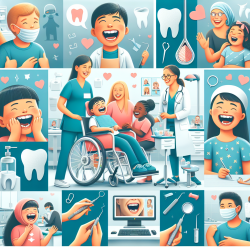Introduction
In the ever-evolving field of medicine, ethical considerations are paramount, particularly in the relationships between medical professionals and the pharmaceutical industry. A recent study titled "Does growing up with a physician influence the ethics of medical students’ relationships with the pharmaceutical industry? The cases of the US and Poland" sheds light on how familial background influences medical students' ethical perceptions and behaviors. This blog explores the findings of this study and discusses how practitioners can leverage these insights to enhance their ethical practices.
Study Overview
The study conducted by Makowska (2017) involved 451 medical students from Philadelphia, USA, and 554 students from Warsaw, Poland. The research aimed to determine how having a physician in the family affects students' views on their relationships with the pharmaceutical industry. The study used a comprehensive questionnaire to gather data, which was analyzed separately for each country.
Key Findings
The study revealed significant differences between students with and without physician family members in both countries:
- In the US, students with physician relatives exhibited more restrictive views on cooperation with the pharmaceutical industry, advocating for limited interaction and strict adherence to ethical guidelines.
- Conversely, Polish students with physician relatives were more liberal in their views, supporting greater collaboration with the industry.
- Trust in the pharmaceutical industry varied, with US students generally more skeptical than their Polish counterparts.
Implications for Practitioners
The contrasting attitudes observed in the study highlight the need for tailored ethical training and policies in medical education. Practitioners can improve their skills by:
- Emphasizing Ethical Training: Incorporate comprehensive ethics curricula that address conflicts of interest and interactions with the pharmaceutical industry.
- Encouraging Transparency: Foster an environment where transparency in industry relationships is prioritized, reducing potential conflicts of interest.
- Promoting Critical Thinking: Encourage students and practitioners to critically evaluate information from the pharmaceutical industry, ensuring that patient care remains the primary focus.
Encouraging Further Research
The findings of this study underscore the importance of understanding cultural and familial influences on medical ethics. Practitioners are encouraged to engage in further research to explore these dynamics in different contexts and develop more effective educational strategies.
Conclusion
The study by Makowska provides valuable insights into how familial background influences medical students' ethical perspectives. By implementing the study's findings, practitioners can enhance their ethical practices, ultimately leading to better patient outcomes. For those interested in delving deeper into the research, the original paper can be accessed through this link: Does growing up with a physician influence the ethics of medical students’ relationships with the pharmaceutical industry? The cases of the US and Poland.










